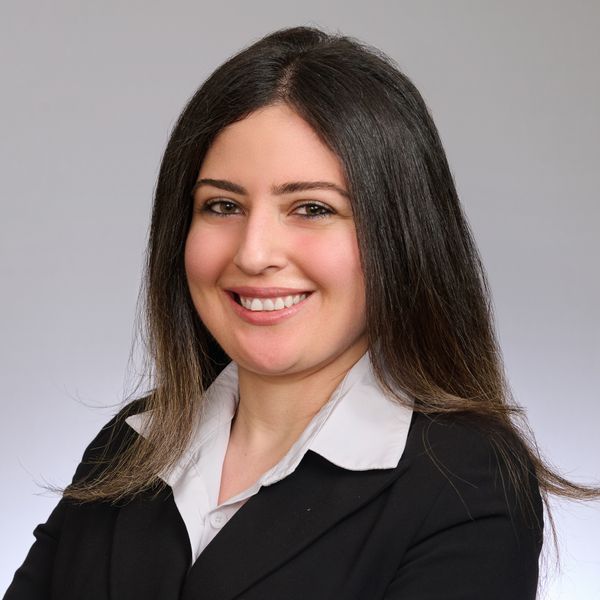
Ihsan Ghazal
Lecturer
Dr. Ihsan Ghazal is a lecturer in science education at Boston University Wheelock College of Education & 人类发展. With a decade of teaching experience spanning K–12 to preservice teachers in both Lebanon and the United States, Dr. Ghazal brings a wealth of diverse educational backgrounds.
Dr. Ghazal’s research centers on the transformative power of systems thinking in science education. She explores how this approach can deepen students’ understanding of complex biological processes, particularly the immune and nervous systems. Her findings suggest improvements to curriculum and instructional methods.
Dedicated to bridging the gap between theory and practice, Dr. Ghazal advocates for a holistic teaching approach that highlights the interconnectedness of body systems. Her work equips educators and students alike with the tools to think critically and holistically about the natural world, fostering a deeper appreciation for the complexities of science.
Recognized for her contributions to equitable STEM education, Dr. Ghazal received the Jhumki Basu Scholar Award from the National Association for Research in Science Teaching (NARST) in 2024. She is also a two-time recipient of the NARST Classroom Teachers Scholarship, which supports collaborative research between teachers and NARST members.
Recent News
Education
PhD, Science Education, Texas Christian University
MA, Science Education, American University of Beirut
Teaching Diploma, Science Education, American University of Beirut
BS, Biology, American University of Beirut
Courses
SC 570
SC 576
Selected Publications
Ghazal, I., & Hokayem, H. (2023). High school students’ reasoning about the immune system in Beirut, Lebanon. Research in Science & Technological Education, 1–27. https://doi.org/10.1080/02635143.2023.2209866
Ghazal, I., Boujaoude, S., & Hokayem, H. (2023). Grade 8 Lebanese students’ reasoning and decision-making about scientific versus cultural and socio-scientific issues. International Journal of Science Education. https://doi.org/10.1080/09500693.2023.2281296.
Fayad, C., Ghazal, I., & Hokayem, H. (2023). Using mathematical and technological skills to teach third graders about carbon footprint. Science Activities. https://doi.org/10.1080/00368121.2023.2284913.
Hokayem, H., Ghazal, I., & Graham, S. (2023). Learning progression of students’ reasoning about life cycles. Science Education International, 34(4), 339-346 https://doi.org/10.33828/sei.v34.i4.9
Selected Presentations
Ghazal, I., & Hokayem, H. (2024, April 11–14). Impact of explicit engagement in argumentation skills on Lebanese grade 8 argument levels and achievement [Roundtable session]. American Educational Research Association, Philadelphia, PA.
Ghazal, I., & Hokayem, H. (2024, March 17–20). Grade 8 students’ argumentation about scientific vs socio-scientific issues [Paper presentation]. National Association for Research in Science Teaching, Denver, CO.
Hokayem, H., Ghazal, I., & Graham, S. (2024, March 17–20). Learning progression of students’ reasoning about life cycles [Paper presentation]. National Association for Research in Science Teaching, Denver, CO.
Ghazal, I., & Hokayem, H. (2024, January 10–13). Pre-service teachers systems’ thinking about the nervous system [Paper presentation]. Association for Science Teacher Education, New Orleans, LA.
Ghazal, I., & Hokayem, H. (2023, October 18–21). Tracking Lebanese students’ reasoning about immune concepts from grades 8 to 12 [Paper presentation]. School Science and Mathematics Association, Colorado Springs, CO.
Ghazal, I., & Hokayem, H. (2023, August 28–September 1). A learning progression on Lebanese students’ systems thinking about the immune system [Paper presentation]. The European Science Education Research Association, Cappadocia, Turkey.
Ghazal, I., & Hokayem, H. (2023, April 18–21). Lebanese students’ reasoning of the immune system in grades 8 and 12 [Paper presentation]. National Association for Research in Science Teaching, Chicago, IL.
Ghazal, I., & Hokayem, H. (2023, March 15–18). A systemic reasoning framework on human body systems [Paper presentation]. International Consortium for Research in Science and Mathematics Education, Panama City, Panama.